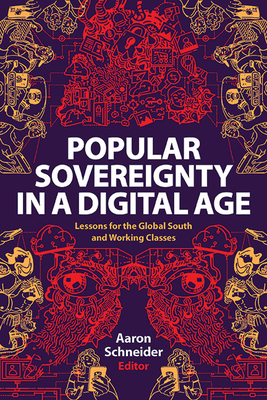Popular Sovereignty in a Digital Age: Lessons for the Global South and Working Classes

Popular Sovereignty in a Digital Age: Lessons for the Global South and Working Classes
Looks at how digitalization has changed the way we produce and interact, and the implications for working classes and countries of the Global South. In the evolution of global capitalism and geopolitics, digitalization presents a new and yet unresolved chapter. In the lead up to digitalization, neoliberalism weakened the welfare states of the Global North and the developmental states of the Global South where they existed. Neoliberalism also disorganized working classes, as Left parties and labor organization declined across the globe. Into this deregulated and unchecked context, digitalization proceeded, and technology companies inserted themselves into multiple sectors, making use of first mover advantage and monopolistic practices to drive out smaller and less advanced firms. We can now characterize a landscape in which states have been weakened, working classes disorganized, and rival firms greatly handicapped, allowing big tech to operate as all-powerful quasi-monopolies. They enjoy unprecedented concentration of wealth, power, and advantage. Worryingly, deregulated technology now penetrates many areas of life with surveillance and control, setting us on a path towards anti-democratic, neo-imperial, and exclusionary futures. Aaron Schneider offers a popular<
PRP: 362.73 Lei
Acesta este Prețul Recomandat de Producător. Prețul de vânzare al produsului este afișat mai jos.
326.46Lei
326.46Lei
362.73 LeiLivrare in 2-4 saptamani
Descrierea produsului
Looks at how digitalization has changed the way we produce and interact, and the implications for working classes and countries of the Global South. In the evolution of global capitalism and geopolitics, digitalization presents a new and yet unresolved chapter. In the lead up to digitalization, neoliberalism weakened the welfare states of the Global North and the developmental states of the Global South where they existed. Neoliberalism also disorganized working classes, as Left parties and labor organization declined across the globe. Into this deregulated and unchecked context, digitalization proceeded, and technology companies inserted themselves into multiple sectors, making use of first mover advantage and monopolistic practices to drive out smaller and less advanced firms. We can now characterize a landscape in which states have been weakened, working classes disorganized, and rival firms greatly handicapped, allowing big tech to operate as all-powerful quasi-monopolies. They enjoy unprecedented concentration of wealth, power, and advantage. Worryingly, deregulated technology now penetrates many areas of life with surveillance and control, setting us on a path towards anti-democratic, neo-imperial, and exclusionary futures. Aaron Schneider offers a popular<
Detaliile produsului










